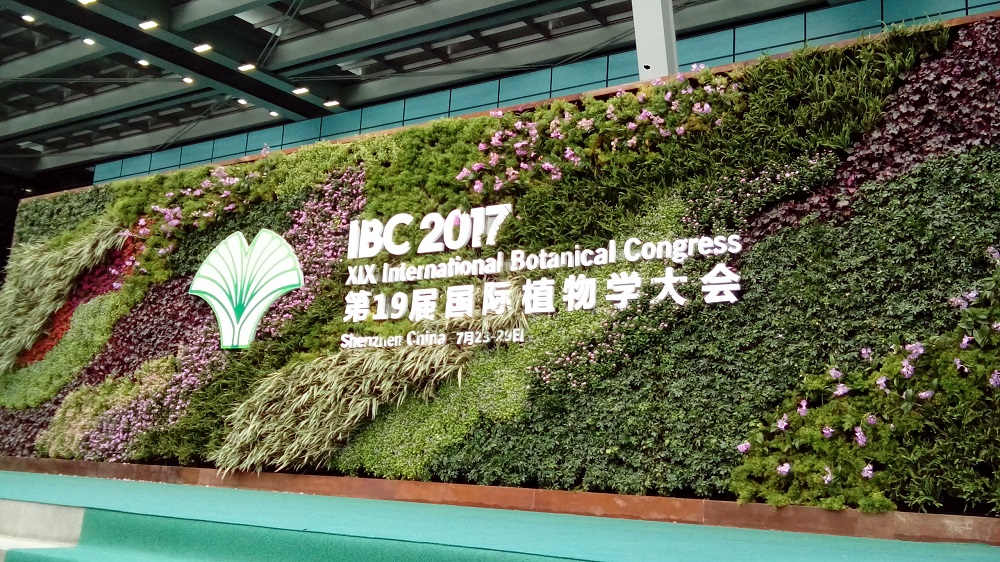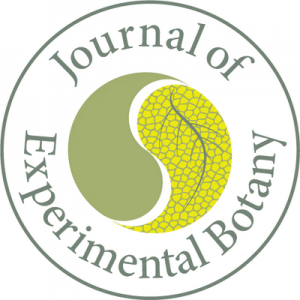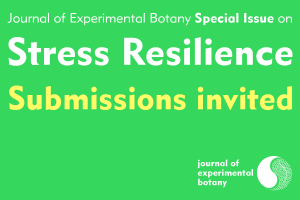This week’s post was written by Jonathan Ingram, Senior Commissioning Editor / Science Writer for the Journal of Experimental Botany. Jonathan moved from lab research into publishing and communications with the launch of Trends in Plant Science in 1995, then going on to New Phytologist and, in the third sector, Age UK and Mind.
In this week of the XIXth International Botanical Congress (IBC) in Shenzhen, it seems appropriate to highlight outstanding research from labs in China. More than a third of the current issue of Journal of Experimental Botany is devoted to papers from labs across this powerhouse of early 21st century plant science.
Collaborations are key, and this was a theme that came up time again at the congress. The work by Yongzhe Gu et al. is a fine example, involving scientists at four institutions studying a WRKY gene in wild and cultivated soybean: in Beijing, the State Key Laboratory of Systematic and Evolutionary Botany at the Institute of Botany in the Chinese Academy of Sciences, and the University of the Chinese Academy of Sciences; and in Harbin (Heilongjiang), the Crop Tillage and Cultivation Institute at Heilongjiang Academy of Agricultural Sciences, and the College of Agriculture at Northeast Agricultural University. Interest here centers on the changes which led to the increased seed size in cultivated soybean with possible practical application in cultivation and genetic improvement of such a vital crop.
Crops and gardens
Botanic gardens are also part of the picture. In another paper in the same issue, Yang Li et al. from the Key Laboratory of Tropical Plant Resources and Sustainable Use at Xishuangbanna Tropical Botanical Garden in Kunming (Yunnan) and the University of the Chinese Academy of Sciences in Beijing present research on DELLA-interacting proteins in Arabidopsis. Here the authors show that bHLH48 and bHLH60 are transcription factors involved in GA-mediated control of flowering under long-day conditions.
Naturally, research on rice is important. Wei Jiang et al. from the National Key Laboratory of Crop Genetic Improvement, Huazhong Agricultural University (Wuhan) describe their research on WOX11 and the control of crown root development in the nation’s grain of choice, which will be important for breeders looking to increase crop yields and resilience.
The other work featured is either in Arabidopsis or plants of economic importance: Fangfang Zheng et al. (Qingdao Agricultural University, also with collaborators in Maryland) and Xiuli Han et al. (Beijing); Yun-Song Lai et al. (Beijing/Chengdu – cucumber), Wenkong Yao et al. (Yangling, Shaanxi – Chinese grapevine, Vitis pseudoreticulata), and Xiao-Juan Liu et al. (Tai-an, Shandong – apple).
Development of plant science
Shenzehn has grown rapidly and is now highly significant for life science as home to the China National GeneBank (CNGB) project led by BGI Genomics. The vision as set out by Huan-Ming Yang, chairman of BGI-Shenzhen, is profound – from sequencing what’s already here, often in numbers per species, to innovative synthetic biology.
Shenzehn is also home to another significant institution, the beautiful and scientifically important Fairy Lake Botanic Garden. At the IBC, the importance of biodiversity conservation for effective, economically focused plant science, but also for so many other reasons to do with our intimate relationship with plants and continued co-existence on the planet, was a central theme.
The research highlighted in Journal of Experimental Botany is part of the wider, positive growth of plant science (and, indeed, botany) not just in China, but worldwide. The Shenzehn Declaration on Plant Sciences with its seven priorities for strategic action, launched at the congress, will be a guide for the right development in coming years.












